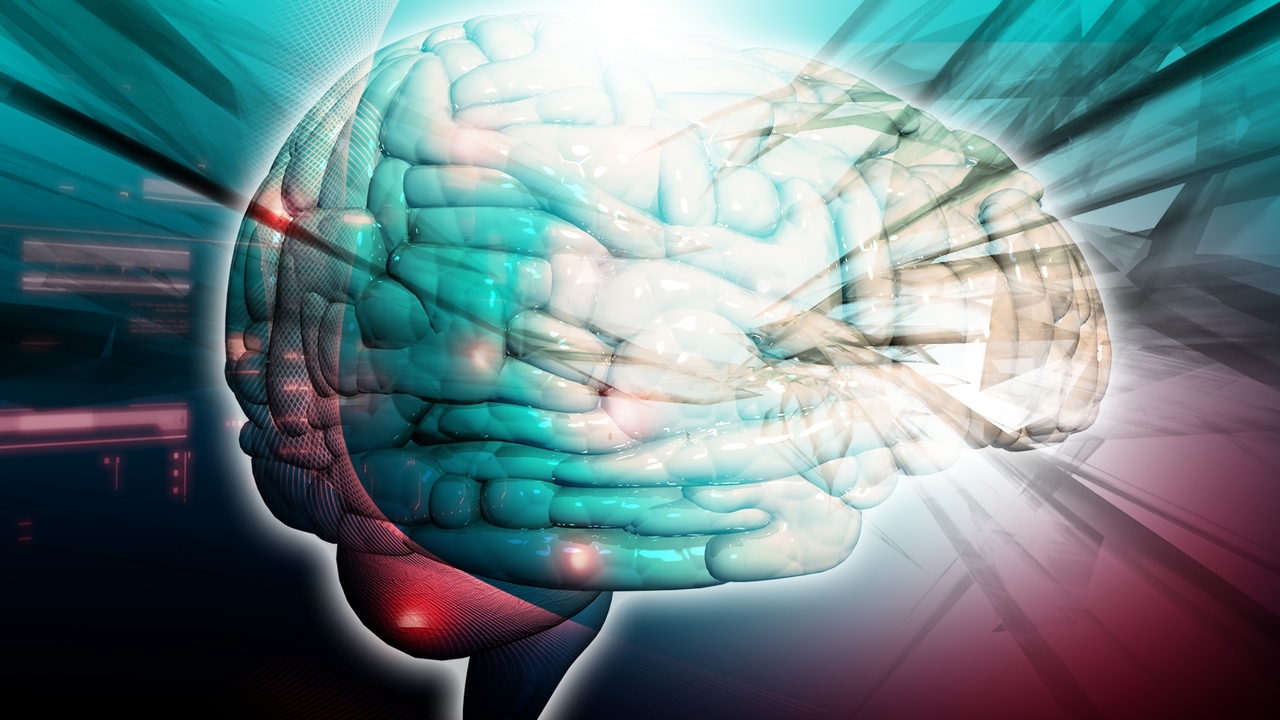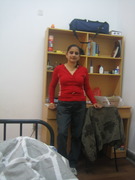So far, three people in my family have had strokes: my father and two of my uncles. The ordeals we faced in our house were sometimes unbearable. Strokes usually leave the patients with partial or complete paralysis. Family members go through a lot with these victims. Paraplegic patients are especially hard to be taken care of since they have to depend on others for every move they make including eating, turning in bed from side to side or bathing. They need special attention 24 hours a day physically and emotionally. Family members become targets for these patients to take their frustrations of getting through simple tasks. Care givers are hard to keep since they have to be on the front line of defense. Feelings of helplessness, not being able to express their emotions, and physical disability make these patients become depressed and angry at times.
Most male patients are known to get strokes right after their retirement while female patients in their 60's following menopause. After working for number of years and being physically active, most men cannot bear with the thought of sitting at home idle. They do not know what to do with themselves with all this ample time they have in their hands all of a sudden. Feeling of worthlessness with out a job makes them depressed. Unless they plan ahead of time what to do with their spare time these men feel they are unproductive. Many men live with the mind set that staying at home is a woman's job not theirs. They just cannot imagine themselves cooking, cleaning the house or doing the household chores. These kinds of jobs are boring for men and waste of time. Some men do adjust to the fact that they now have enough time to do what they always wanted to do in life other than a regular job. These men engage themselves with activities such as golf, tennis, running, swimming, meeting friends at a coffee shop, reading the newspapers, and discussing world politics. They plan trips to local attractions or travel around the world. They financially settle themselves ahead of times so they have enough money to enjoy what life has to offer. If a person is financially unstable by the time they retire the hardships they go through with deciding how to spare whatever money they have saved causes immense pressure. This pressure along with any existing medical problem such as hypertension can lead to strokes or heart attacks. Alcoholics are more prone to strokes than non alcoholics. In my father's case, he was an alcoholic all his life and was in a high position by the time he retired. Suddenly he found himself not being surrounded by people who hung around him while he worked for drinking and socializing. He was a heavy smoker too. The ordeals my mother went through could not be explained since she took over the burden of taking care of him personally without depending on caregivers. She fed him through the tube, gave him insulin injections, kept a bed pan for him, cleaned his bottom, bathed him, read to him at times all the while caring for herself. He was very reluctant in cooperating with her to care for him. Sometimes he acted as if she was the sole responsible person for him to be in that helpless position. Caring for a six foot man was not a cup of tea for her. Even though we helped in whichever way we could the final responsibility was carried by her. At times she couldn't take the stress anymore and broke down completely. When he recovered somewhat, she made sure he walked and did his physical therapy twice a day. Sometimes he was so reluctant to move that she had to literally fight with him to make him take a step. In those times he even beat her up with his anger. But she was determined to make him better. She had patience to get through every day by the day. My father and mother are no lonhger in this world but I see and hear the unspeakable things that my uncles' wives go through with them. I feel for sad for them. But without love and affection these patients do not stand a chance to survive long. And only the family members can give them that support and undivided attention on the way to health.
Women go through hard times with strokes in the same way. But the circumstances that lead to the conditions are different. Menopause can be a major reason for heart attacks and strokes for women because of the hormonal insufficiency. When hormones go down they can lead to diabetes, hypertension, anxiety, stress at work and home, mood swings, and depression. Women who are physically active most of their lives handle menopause much better than women who aren't. All these conditions lead to heart attacks and strokes. A paralyzed woman goes through life in a very hard way since her needs are different. Most men are not made to care for themselves let alone their women. The patience level is very low in men when it comes to caring for little children or wives. The natural nurturing ability lacks in some men. It is not that they don't care but they do not know how to care for others. Most men shy away from helping a paralyzed wife go to the restroom, bathe or change clothes. They would rather hire a helping hand to care for their wives than do anything. Fear of something going wrong also makes them nervous in the care they give. Women are more submissive to people who care for them whether it be the husband, kids or caregivers. They cooperate more as not to give trouble to others. They sympathize with the hardships others go through for them. Unless they are completely paralyzed most women tend to attempt physical activity even if it means moving their hand in order to give others some relief. Women are better at handling their depression than men. They show depression either through silence or by tears. They do not usually show their frustrations through anger, but by crying or accusing others of their ordeals. Some women engage themselves in physical activities such as swimming, going to the gym, meeting with friends, movies, spending time with children, going on trips, reading, gardening, watching television,or chatting with a neighbor in the evenings. Most women enjoy their freedom in trying out their hand in cooking, knitting, crocheting or taking care of their grandchildren. Their focus shifts from working to mostly children or grandkids. As opposed to men, most women welcome the change after retirement. Looking at life with a different perspective could change women who are more prone to health conditions that come with stress, family history, financial instability, marital problems, and children's issues. Even though most women are more patient and act with composure they are the silent sufferers of strokes and heart attacks.
Physical therapy along with counseling helps patients with strokes and paralysis recover to health. Counseling to family members who care for these patients is essential. Relief from day-to-day stress in caring for these patients by a care giver at least once in a week could help recover from the emotional burden for the family. Financial help by government agencies to these patients and families in crisis could be of tremendous help. With growing number of single women with family responsibilities, retirement funds and social security funds aren't being enough for a living anymore. With rising medical and living costs any little help from the government or non-profit organizations would be a boon for the victims of strokes and other health problems.Women at menopause stages should be aware of the health conditions they might face with these kinds of illnesses. De-stressing activities such as yoga, reiki, meditation, and feng shui should be taken into consideration. Physical activities should be made a daily routine in order to stay fit. Healthy and nutritious foods should be incorporated into diet plans. Salt, sugar and fatty foods should be avoided in order to prevent added factors for health hazards. Most of all positive approach towards life could be beneficial towards a healthy and happy life for all women because, OUR LIFE MATTERS.






Add a CommentComments
There are no comments yet. Be the first one and get the conversation started!